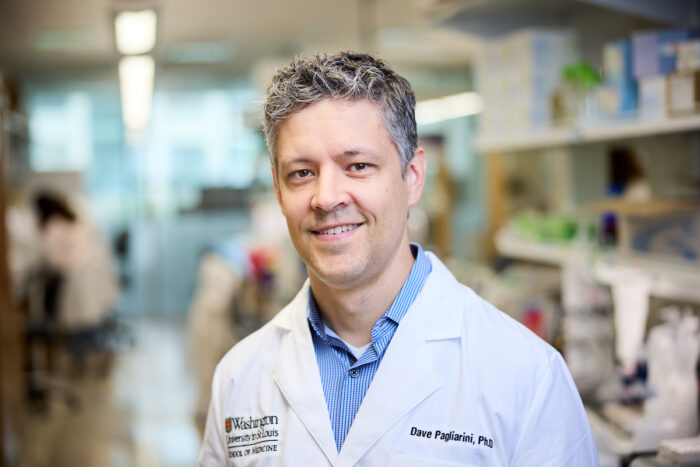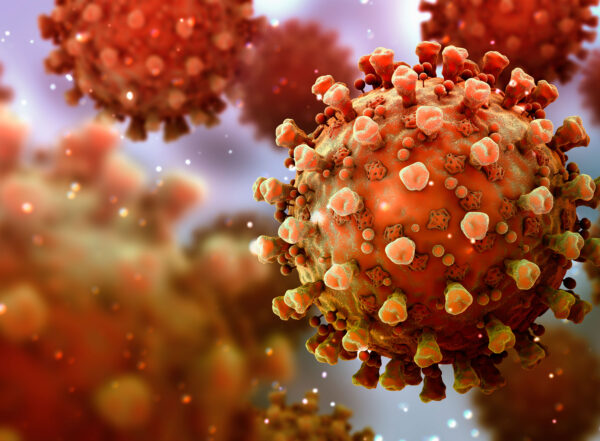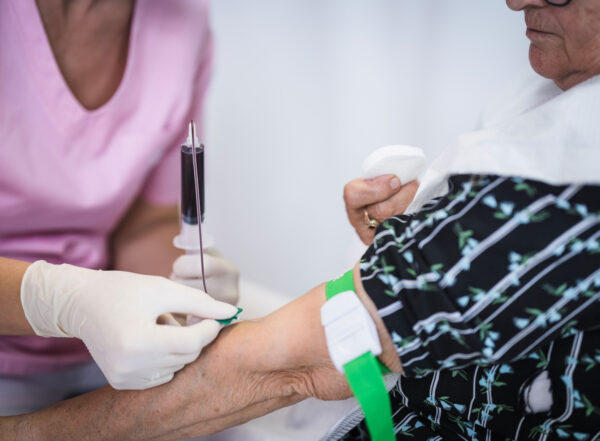Pagliarini named HHMI Investigator
Prestigious award will fund research on mitochondria and related disorders for seven years

As an HHMI Investigator, David Pagliarini, PhD, the Hugo F. & Ina C. Urbauer Professor and a BJC Investigator in the Department of Cell Biology & Physiology will receive approximately $11 million in HHMI funding over a seven-year term. The award will allow him to better understand mitochondrial functions and possible medical interventions for mitochondrial disorders.
David Pagliarini, PhD, the Hugo F. & Ina C. Urbauer Professor and a BJC Investigator in the Department of Cell Biology & Physiology at Washington University School of Medicine in St. Louis, has been named a Howard Hughes Medical Institute (HHMI) Investigator. HHMI will be supporting Pagliarini’s research on mitochondria, organelles embedded within cells that produce much of the body’s energy, and his effort to shed light on the underlying genetic causes of mitochondrial disorders. These conditions affect one in 5,000 people and can impair growth, muscle strength, vision and other body functions.
HHMI grants investigator awards to accomplished scientists who are pursuing ideas with the potential to answer fundamental questions about biology. The program is intended to support “people, not projects,” and to provide scientists the time, funding and freedom they need to follow their science where it leads. In Pagliarini’s case, it will allow him to add technical capacity to scale up and expand the breadth of his research into mitochondrial proteins and their functions.
As an HHMI Investigator, Pagliarini will receive approximately $11 million in HHMI funding over a seven-year term, which can be renewed after scientific review. Pagliarini is one of 26 scientists in the 2024 cohort of new investigators, of nearly 1,000 that applied.
The sort of freedom that the HHMI seeks to encourage is precisely what drew Pagliarini to the School of Medicine in 2020. At the time, he was an associate professor of biochemistry at the University of Wisconsin – Madison and lead metabolism investigator of that school’s Morgridge Institute for Research. In the latter role, he was responsible for developing a program in metabolic research and had assumed a number of administrative duties. The opportunity to join Washington University as one of the first BJC Investigators – a program modeled after the HHMI Investigators – came at the right moment, when he was looking to devote more energy into his own lab.
The BJC Investigator Program brings to the School of Medicine scientists who will have a transformational impact on research programs, bring innovative approaches to major biological questions, and whose discoveries stand to inform new ways of understanding disease and developing treatments.
“The BJC Investigator Program provided my laboratory ample freedom to pursue our most ambitious research, and it’s allowed us to expand and take new risks,” Pagliarini said.
Pagliarini is well regarded for his effort in leading the creation of MitoCarta, which catalogs known mitochondrial proteins and how they are expressed in different tissues. The data have had a profound effect on the field, demonstrating how little was known about the function of hundreds of mitochondrial proteins. By illuminating where the blank spots on the mitochondrial map are, MitoCarta has enabled a systematic effort to uncover the functions of these “orphan” proteins, and potentially their role in mitochondrial-linked disorders. There are a wide range of these conditions, including a subtype of diabetes, and they often involve conditions in which muscles or nerves do not function properly, leading to stunted growth, or deafness and vision disorders.
The HHMI Investigator award will allow Pagliarini and his team to continue that work to better understand mitochondrial functions and possible medical interventions. A current research passion of Pagliarini’s, coenzyme Q (CoQ), has its roots in classical biochemistry. Discovered 70 years ago, CoQ is a lipid (fatty compound) that is revealing itself to be a Swiss Army knife for the cell, crucial to processes as varied as protecting cell membranes from damage to driving enzyme activity. When he applied for the HHMI Investigator award, Pagliarini wasn’t sure that the program would share his interest.
“I love the biochemistry of CoQ, and I love trying to understand how it’s made in mitochondria and distributed throughout the cell to support diverse biology. And yet, in my mind I was concerned this pursuit would appear esoteric,” he said.
This is precisely what the HHMI Investigators program is looking to support: identifying fundamental questions about biology, and then setting scientists free with the resources they need to pursue the answers wherever they might be.
“We don’t know what untapped biology will prove most important for human health. CoQ is undeniably essential for cellular operations and yet there are so many fundamental things about it that we don’t know. We’re figuring those out, and HHMI embraces the philosophy that pursuing fundamental biology is the right long-term bet,” said Pagliarini.
That said, the implications of understanding the biology of CoQ reach could reach far beyond the lab. Deficiencies in CoQ are implicated in several diseases, including type 2 diabetes, certain kinds of movement disorders, and chronic kidney and liver conditions. It can be administered therapeutically when needed, but because the body cannot absorb it properly it is not very effective. Pagliarini says that being able to build on his “esoteric” understanding of CoQ to develop effective delivery systems for the lipid could transform current treatments.
Creating new cellular models, procuring advanced equipment, and conducting large-scale screens are all time consuming and expensive, forcing limitations on pursuing promising leads. With the support from the HHMI Investigator program, the Pagliarini lab can place its bets on multiple options, without the concern that a single failure to pay off would set back the project.
“It’s empowering for our team. People get excited about taking a chance on an idea, knowing that they’re not going to tank the lab or their own PhD if something doesn’t work,” he said.
Pagliarini said the HHMI Investigator award provides gratification in knowing that his peers find value in his work. “It’s easy to peruse the top journals or go to meetings and feel like everybody else is doing the cool stuff. Having such accomplished and respected scientists see promise in our approach and vision is invigorating.”






